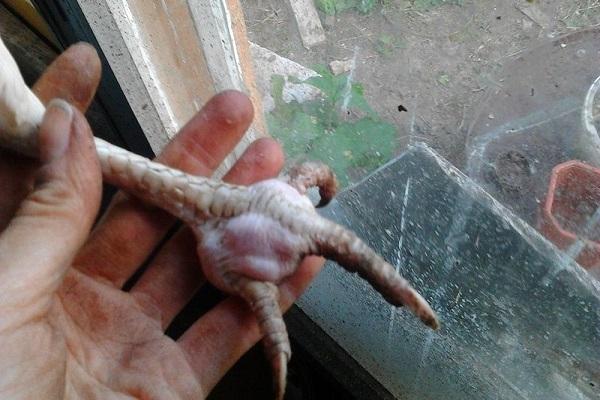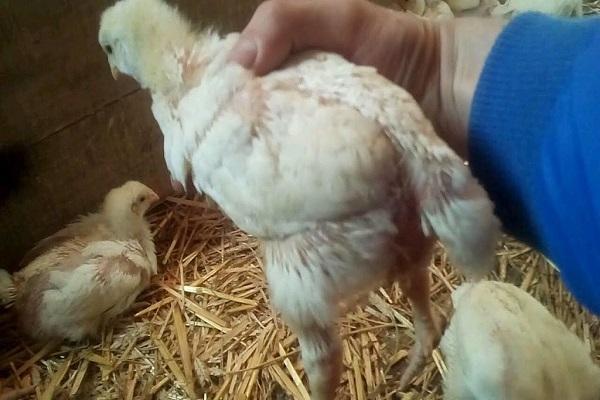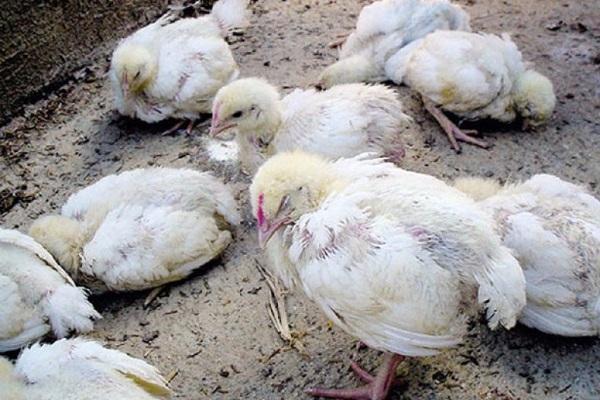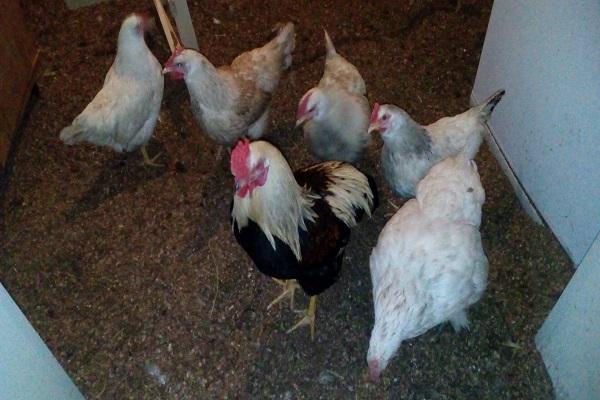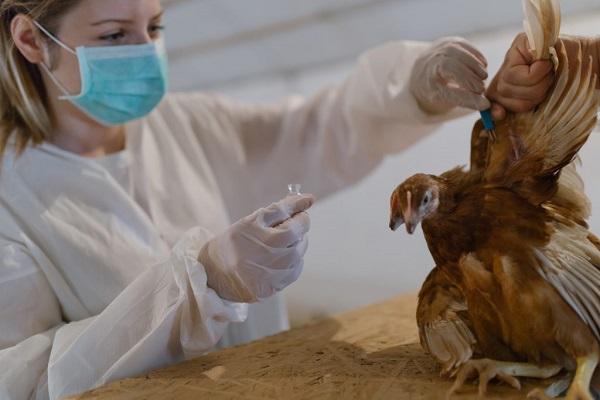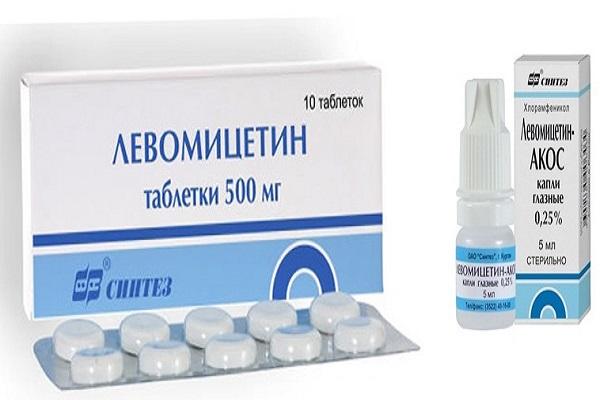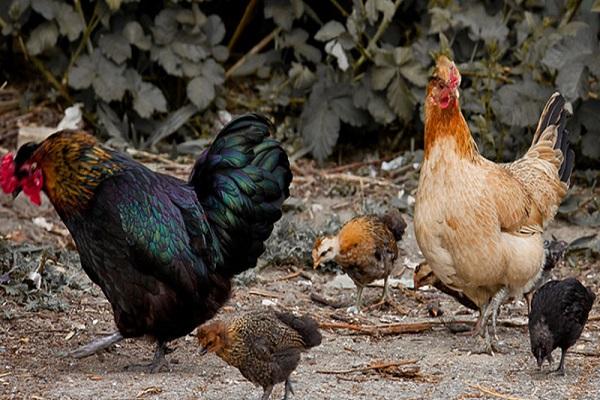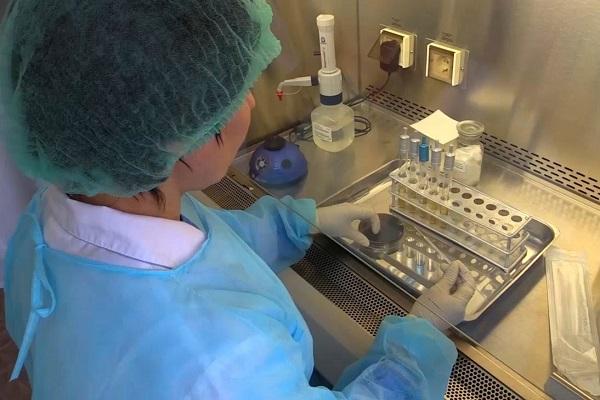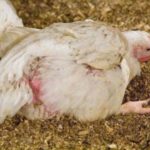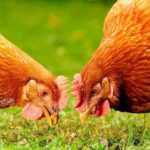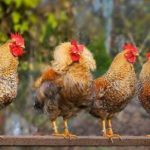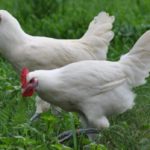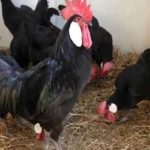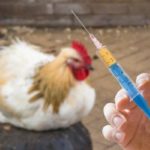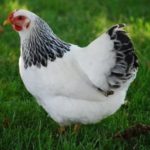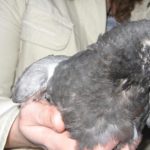The development of salmonellosis in chickens is observed quite often and provokes negative consequences for the health of birds. This bacterial disease causes damage to the digestive tract of birds. With a subacute or chronic course of the disease, there is a risk of cases of arthritis and pneumonia. If symptoms of the disease occur, it is necessary to take timely measures. Otherwise, there is a risk of rapid spread of infection.
Is there a danger to humans?
Birds suffering from salmonellosis pose a danger to humans. When eating contaminated foods - eggs or meat - there is a risk of developing severe toxic infection.
Salmonella lives in the intestines of birds. However, it can get on eggs or carcasses at the time of slaughter. If the rules of storage of products are violated or insufficient processing occurs, there is a threat of complex mass poisonings.
Causes of the disease
Chickens are usually infected through feed or water. Penetration of a pathogen into the body does not always lead to the development of disease. It all depends on the type of salmonella, the characteristics of keeping the birds, age category and disease resistance.
The risk of developing salmonellosis increases with overheating or hypothermia of chickens, violation of sanitary standards, high concentration of livestock, and stagnation of fluid. In incubators, mass infection of young birds during hatching is often observed.
Salmonella enters large farms with feed. This also happens with breeding eggs. In this case, there is an outbreak of salmonellosis that can last a whole year. After that, technological replacement of livestock contributes to the improvement of the economy.
Pathogen
Salmonella infection leads to the development of pathology. This pathogen has several types:
- Typhimurium;
- enteritidis;
- gallinarum-pulorum.
Salmonella is considered to be a fairly persistent bacteria. They are present in poultry droppings for up to 4 months, in tap water – 2, in reservoirs – 7. Salmonella can persist in soil for a whole year.
The disease is dangerous for people and all animals.
Stages and symptoms of salmonellosis in chickens
Salmonellosis poses a danger from the first day of infection.When infected through food or water, the latent period lasts a week. If the bird was infected by air, symptoms of the disease appear after a day.
In young animals
Symptoms of pathology in chicks include the following:
- general weakness;
- loss of feathers;
- loss of appetite;
- breathing problems;
- weak growth.
In adult chickens
In adults, the key manifestations of the disease include the following:
- swelling;
- sparse plumage;
- loss of vision;
- thirst;
- lameness;
- dull comb;
- diarrhea;
- a sharp decrease in productivity.
Diagnostic methods
To select drugs for treating the disease, it is worth conducting a diagnosis. To do this, it is recommended to contact a veterinarian. A doctor should examine the chickens and take blood tests. It is also worth sending some bird organs for laboratory testing.
During diagnosis, bacterial resistance to antibiotics is assessed. This allows you to select the most effective drug.
Methods of treating the disease
If signs of the disease are detected, you need to take immediate action:
- It is recommended to immediately isolate a sick bird from other individuals. Quarantine must last at least 10 days. During this time it is worth watching the bird.
- Carry out preventative treatment of the chicken coop. An isolated individual should be returned to the flock only after repeated tests have been performed.
- Use antibiotics to treat the disease. They are injected or added to food or water.
- A chicken coop in which salmonella has been detected should be kept under control. This will help prevent the infection from spreading to other pets.
- Nests and eggs should be treated with special products - Metacid or Virkon.
- Disinfect the chicken coop. Probiotics should be given to newly hatched chicks immediately.
Drug therapy
It is advisable to treat pathology only at an early stage. In case of pronounced manifestations of salmonellosis, chickens are destroyed. Conditionally healthy birds are treated prophylactically. To do this, antibiotics are mixed into food and drink.
For pathology, the following drugs are used:
- Levomycetin;
- Baytril;
- Tetracycline.
To support the digestive organs of birds during the period of antibacterial treatment, it is worth giving them probiotics.
It is important to follow the dosage prescribed by your veterinarian.
Traditional methods
It is impossible to eliminate the disease with folk remedies. As a preventative or additional remedy, you can use a decoction of chamomile or calendula. Plantain and tansy are also great. Such agents are added to water during and after completion of therapy.
Possible consequences
In adult birds, the pathology is chronic. This means that they carry the bacteria all their lives. Therefore, birds in which the pathogen was detected should be immediately culled from the herd. Chickens can also carry bacteria. In this case, the disease does not develop, but the pathogen is excreted in the droppings or eggs.
State control
Since salmonellosis is dangerous for people, the state must actively monitor farms and the composition of products that go to retail outlets. To avoid the spread of infection, you should take the following measures:
- Assess the condition of the livestock and its conditions of detention. At the same time, it is worth monitoring large production and small farms. Checks for the presence of bacterial microorganisms are mandatory.
- Check chicken food. At the same time, it is worth monitoring different types of food.
- Analyze the condition of incubators.They are checked for the presence of salmonella in eggs and compliance with hygiene recommendations.
- Analyze products in the laboratory. Before entering retail outlets, meat must undergo mandatory control.
- Supervise employees. Farm personnel must undergo annual inspection.
- Conduct control before issuing a certificate. In such a situation, the enterprise must comply with all conditions that imply bacterial checks.
If salmonella is detected, farmers are prohibited from selling meat, eggs and even chicken feathers. Infected birds must be slaughtered. In this case, the affected organs are disposed of.
Prevention measures
To minimize the threat of salmonellosis development, you should follow these rules:
- carefully examine the birds;
- If signs of disease are detected, isolate affected chickens;
- treat the chicken coop with disinfectants;
- vaccinate chickens;
- Give birds food with useful additives that help strengthen the immune system.
The development of salmonellosis in chickens poses a danger to birds and people. To cope with the disease and avoid its spread, it is worth taking adequate measures in a timely manner. To do this, they isolate infected birds, use antibiotics, and treat the chicken coop..

